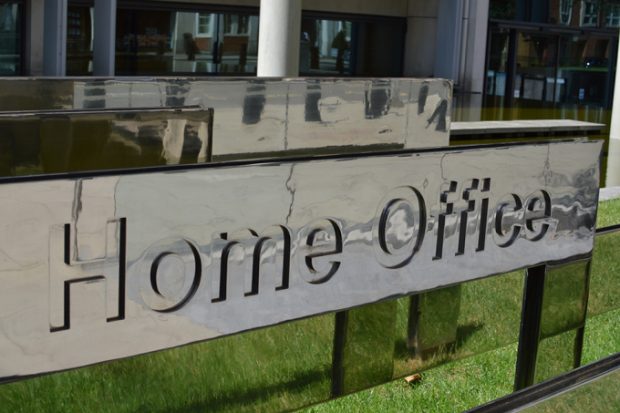
Today’s Home Office-related stories include coverage of a rise in hate crimes against mosques, claims of racial profiling by Immigration Enforcement officers, and calls for the government to do more to tackle child grooming gangs.
Hate crimes against mosques
The Press Association has reported that, according to Freedom of Information figures from 42 police forces across the UK, the number of hate crimes against mosques has doubled in a year. According to the report there were 110 reports of hate crime against mosques between March and July 2017 compared to 47 in the same time period a year before.
The story is followed up in the Times, Telegraph and Sun who all report that the crimes included racist abuse, threats to "bomb the mosque" and smashing of windows.
The Home Office statement below sets out the government's action to tackle hate crime.
A Home Office spokesperson said:
All forms of hate crime are completely unacceptable and the UK has some of the strongest laws in the world to tackle it.
But this is not just about legislation. Our Hate Crime Action Plan has improved the response of law enforcement and the criminal justice system to these horrendous attacks.
And we have made additional funding available - £900,000 for locally based projects to tackle hate crime and £3.4million to protect mosques and other places of worship from hate attacks, which includes an additional £1m announced by the Home Secretary announced following the Finsbury Park attack.
Immigration enforcement
The Guardian reports on a story previously published by the Bristol Cable that nearly one in five people stopped by Immigration Enforcement are UK nationals.
Citing figures released under a Freedom of Information request, the article says that out of 102,552 people stopped in the past five years by Immigration Enforcement, 19,096 or 18.6% were British citizens with claims by human rights lawyers that staff are racially profiling people.
The Home Office’s response to these claims can be found below.
A Home Office spokesperson said:
All Immigration Enforcement activity is intelligence-led and fully compliant with the Equality Act 2010.
It is unlawful for an Immigration Officer carrying out their duties to undertake any act that constitutes direct discrimination based on a person’s race or ethnicity.
A person’s colour or perceived ethnic origin can never be the basis of a reasonable suspicion that someone is an immigration offender. Nothing in the data provided indicates that this is happening.
Child grooming gangs
The Independent carries a report with claims that grooming gangs, similar to cases previously seen in Rochdale, Newcastle and Rotherham, are operating all around the country.
The piece quotes Pat Richie, chief executive of Newcastle City Council, who says that towns and cities that did not think it had a problem were “simply not looking for it”, while Northumbria Police Chief Constable Steve Ashman says abuse is happening in every town. The Independent also quotes Sammy Woodhouse, who waived her right to anonymity after she was abused as a teenager, and who says the government is trying to "play this down" and "not doing enough" to tackle sexual exploitation.
Below is the Home Office statement on what has been done to tackle child grooming.
A Home Office spokesperson said:
This Government has done more than any other to tackle child sexual exploitation, declaring it a national threat and investing millions of pounds to enable officers to actively seek out and bring offenders to justice. This has led to a huge increase in police activity and a marked rise in prosecutions and convictions.
We are continuing the urgent work of overhauling how our police, social services and other agencies work together to protect vulnerable children, especially from the kind of organised grooming and sexual exploitation that has come to light in towns and cities across the UK.
The Tackling Child Sexual Exploitation: Progress Report, published in February 2017, details our delivery of the ambitious programme of work we set out in the original 2015 report, and signals a step change in our national response to sexual violence against children and young people.
